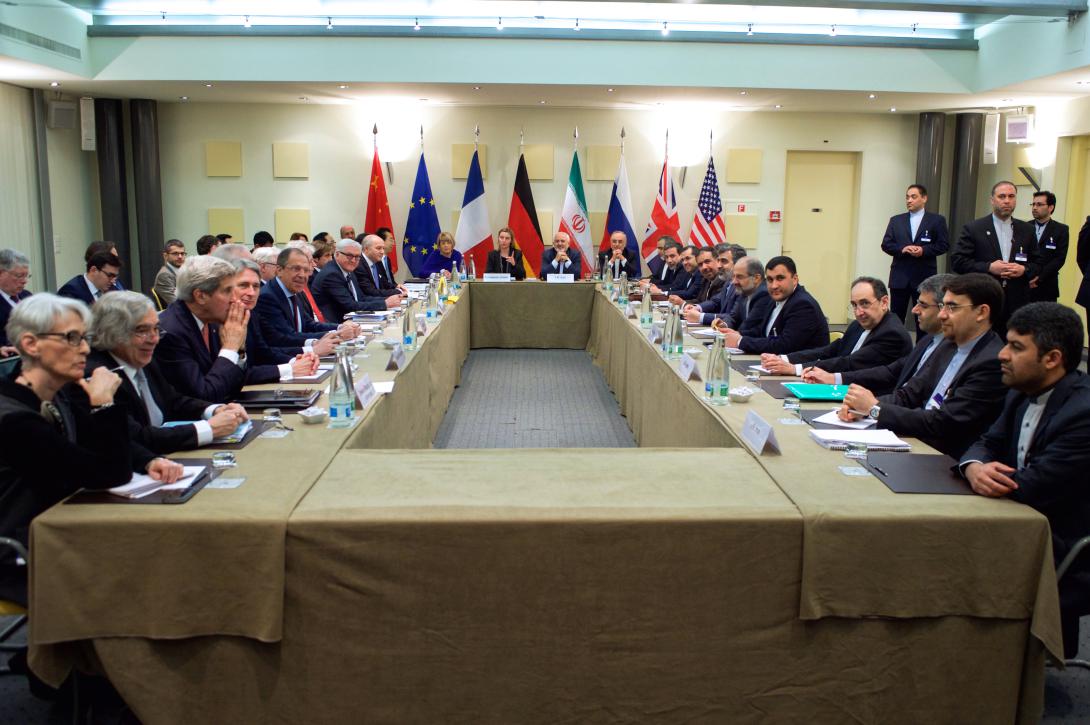Two Events, Many Questions
Two separate events, each with implications for intelligence—specifically U.S. intelligence—have thrust important issues to the forefront.
The first event is the Iranian nuclear accord, now under congressional review. The intelligence community will face many questions, ranging from the ability of intelligence to support compliance with the terms of the agreement to questions regarding its broader implications. Does it at least slow Iran’s acquisition of nuclear weapons? Can evidence of noncompliance be conclusive? To whose satisfaction? Israel’s reservations notwithstanding, will the agreement close off, at least for some time, the option of an Israeli military strike? Such questions will test the full range of U.S. and allied intelligence services through the life of the agreement, assuming that it will go into effect. The larger question of how leaders of the United States and the other P5+1 nations react to allegations of Iranian noncompliance is beyond the scope of this format.
As for the second event; if the Iran issue is full of questions regarding what intelligence is capable of doing, the murder of five U.S. service members in Tennessee raises once again the questions of what the American people want their intelligence services to do and the public’s willingness to trust those services with powers that enable them to function effectively. From the Snowden disclosures through the passage of the USA Freedom Act earlier this year, the public discussion was dominated by concerns that intelligence had overstepped its authorities. We should recall, however, that in the week or two between the Boston Marathon bombing and the Snowden disclosures, U.S. security services were criticized severely for their alleged failures in tracking down the Tsarnaev brothers and keeping them under surveillance.
We may now be in for a repetition of that back-and-forth motion, the “wiper blade” path of U.S. public opinion. Check the reactions coming out since the shootings in Chattanooga and you will find everything from tighter security at recruiting centers and other defense and security facilities, to “better HUMINT,” to speculating that the USA Freedom Act went too far. Some of this may have value. It makes sense, for example, to think that strip mall recruiting centers should be as secure as the jeweler or mobile phone store operating from adjacent storefronts. Others hint at post-crisis overreaction. In the end, however, reality must be served: recruiting is a marketing function and will require, of necessity, a certain openness. And openness brings with it a measure of vulnerability. Moreover, and this can be a hard reality to keep in mind, as an open society we generally accept the need to take risks to protect, perhaps as much as life, that very openness.
An equally large question here goes to the assailant in Tennessee. In an astonishingly short period of time, at least some of the reporting on the incident has shifted from shock that service members who had served combat tours and the wounds associated with such tours had died on U.S. soil to questions about the troubled youth experienced by their murderer.
In the end, terrorism is not a therapeutic issue. We have heard and read a great deal in recent months about the rising concern of home grown terrorism. The reality may be even more complex and dangerous—that is, the emergence of home grown, self-radicalized and even “home-schooled” terrorists. It is likely that radicalized individuals now are finding ample sources of information to stoke their sense of mission and to enhance their skills online, without leaving the footprints associated with training in Syria. How, as a final question, do the public and its representatives propose we deal with this?
Beyond these questions, let me list the names of the Chattanooga victims:
Sgt. Carson Holmquist, USMC (Two deployments, Afghanistan)
Petty Officer 2nd Class Randall Smith, USN
Gunnery Sgt. Thomas Sullivan, USMC (Two deployments, Iraq; recipient of two Purple Hearts)
Lance Cpl. Squire Wills, USMC
Staff Sgt. David Wyatt, USMC (Two deployments, Iraq; One to Afghanistan)
As AFCEA members, we have special reason to remember them and their families. RIP.
The Iranian accord raises large questions about what intelligence is capable of doing. The Chattanooga shootings raise equally large issues about what the American public wants intelligence to do.
Bill Nolte is a research professor at the University of Maryland School of Public Policy.






Comment
Chattanooga Victims
Bill,
Good column, and thank you for including the names of the victims in Chattanooga.
One of my West Point classmates was killed by an IED in Kabul over the weekend.
It appears to me that it's business as usual for most Americans. But not for the patriots we lost in these attacks--or their families.
Comments